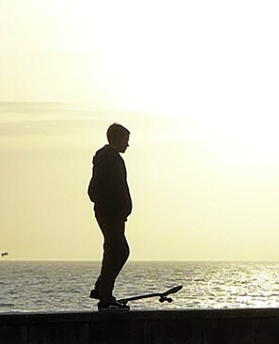Pearson, Christopher, of Ullock in Dean (-1711)
Summary
Christopher Pearson was the son of William and Isabel Pearson of Bridgend in Ullock.
Like his sister Dorothy he was a Quaker. He may have been convinced, and persuaded her, or the other way round - their father was dead before 1650, and their mother isn't mentioned in the Pardshaw burials, so it doesn't look as though they were brought up as Quakers. However, others in the area were, and may have been an influence.
He is described as grandson in the will of John Pearson of Bridgend in Ullock in 1650.
He married Eleanor Fearon, daughter of George Fearon of Ullock, in 1670.
He had children: Mary (1671-1708), Sarah (1673-1689), John (1677-1728) and Peter (1679-1735).
Children
The property was inherited by John. Mary married John Gill of Eaglesfield and had children. Peter established a family in Virginia. In his will, Christopher mentions that he had 'preferred' Peter already (in other words, had given him money to set up in Virginia). This practice of setting up younger sons early on was common, though not always stated in wills. It made sense, not just for budding colonists - a young man with a bit of money or a farm could attract a wife and further investment from her family. Yeoman families tended to be quite hard-headed about such things. No prospects, no wife.
Value of Estate
The probate inventory shows that Christopher had few possessions at his death. It is the will of a retired man who has passed on the farm already. The valuation was put at £12 5s - his clothes, some ready cash, bedding, undefined chattels (maybe a little furniture, some books, a few utensils), a foal and some sheep. The animals probably gave him some sense of independence and worth.
Compare that to the inventory of his son John in 1728. If we strip out his additional cash reserves and investments, the farm chattels on their own were valued at £117.
So, by 1711, Christopher was old enough or ill enough to have handed over to the next generation. As he married in 1670, a likely birth date would be c1635-1645 (given the age of his mother, say, 1637), so he was probably in his early 70s in 1711.
His will, by the way, doesn't use Quaker dating - but that may not have been his choice.
Will of PEARSON, Christopher, of UIllock in Dean 1711 |
|
I Christopher Pearson of Ullock in the parish of Dean & County of Cumberland yeo[man – there is a line over it to indicate an abbreviation] Being weak in Body but perfect in mind & memory, doe therefore make my last Will & Testamt in maner as followeth |
First I commit my spirit to god and my body to be buryed at the discretion of my Executor hereafter named And as to the settling of that small estate it hath pleased the Lord to lend to me I give & bequeath the same as followeth that is to say; |
I give to my son Peter Pearson one shilling in full of my personall estate haveing preferred him before; |
I give to my loveing wife Ellinor twenty shillings and one beding of Cloathes, & a Bedstead in the Back loft. |
And all the rest of my Goods and Chattells moveable and unmoveable I give & bequeath to my son John Pearson whom I make Sole Executor of this my last Will & Testamt he paying and discharging my debts legacies and funerall expenses In Witness whereof I have hereunto this my last Will set my hand & seale this seventeenth day of March Ano Dom 1710/11 |
|
Christopher Pearson [signature] |
Sealed published and declared to be his will in the presence of us |
|
Christopher Fearon [signature] John Bowman [signature] John Wilson [signature] |









